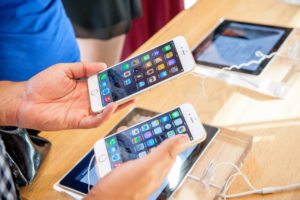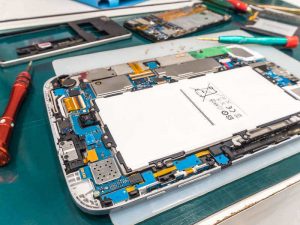 A company that manages mobile phone take-back programs has invested more than $1 million in a new processing site and plans to hire hundreds of workers in the coming months.
A company that manages mobile phone take-back programs has invested more than $1 million in a new processing site and plans to hire hundreds of workers in the coming months.

 A company that manages mobile phone take-back programs has invested more than $1 million in a new processing site and plans to hire hundreds of workers in the coming months.
A company that manages mobile phone take-back programs has invested more than $1 million in a new processing site and plans to hire hundreds of workers in the coming months.
![]() The EPEAT sustainable electronics program now includes mobile phones, providing assurance to buyers that the qualifying devices meet certain standards for end-of-life management.
The EPEAT sustainable electronics program now includes mobile phones, providing assurance to buyers that the qualifying devices meet certain standards for end-of-life management.
 The world’s two largest smartphone brands, Samsung and Apple, shipped fewer devices in 2016 than one year earlier. Continue Reading
The world’s two largest smartphone brands, Samsung and Apple, shipped fewer devices in 2016 than one year earlier. Continue Reading
 California officials are inviting industry players to participate in a survey regarding possible changes to the state’s e-scrap recycling program.
California officials are inviting industry players to participate in a survey regarding possible changes to the state’s e-scrap recycling program.
 On average, popular phones, tablets and laptops are relatively easy to fix, but the market may be trending toward less repairable designs, a recent analysis found.
On average, popular phones, tablets and laptops are relatively easy to fix, but the market may be trending toward less repairable designs, a recent analysis found.
 Whenever Apple indicates a new product release, device-recovery firms join in on the wider consumer market chatter. But in the runup to this fall’s release of the next iPhone, the recycling and repair buzz – and anxiety – is even more charged than normal.
Whenever Apple indicates a new product release, device-recovery firms join in on the wider consumer market chatter. But in the runup to this fall’s release of the next iPhone, the recycling and repair buzz – and anxiety – is even more charged than normal.
![]() The market for refurbished electronic devices is growing and that means more players are entering the supply chain. With that can come more risk, not just for companies buying inventory to repair, but for everyone in the chain.
The market for refurbished electronic devices is growing and that means more players are entering the supply chain. With that can come more risk, not just for companies buying inventory to repair, but for everyone in the chain.
 A year ago, a federal official temporarily granted individuals and companies alike the right to unlock used phones and tablets. Now, the Institute of Scrap Recycling Industries (ISRI) is asking to make that ruling permanent.
A year ago, a federal official temporarily granted individuals and companies alike the right to unlock used phones and tablets. Now, the Institute of Scrap Recycling Industries (ISRI) is asking to make that ruling permanent.
The Librarian of Congress has determined it is now illegal to unlock mobile phones, leaving many in the burgeoning mobile device refurbishment business scrambling to determine how the law will affect their business.
Apple recovered around 61 million pounds of e-scrap in 2015, according to the company. Continue Reading
